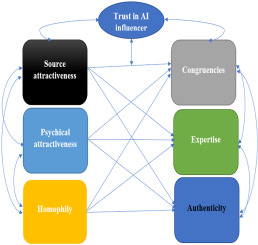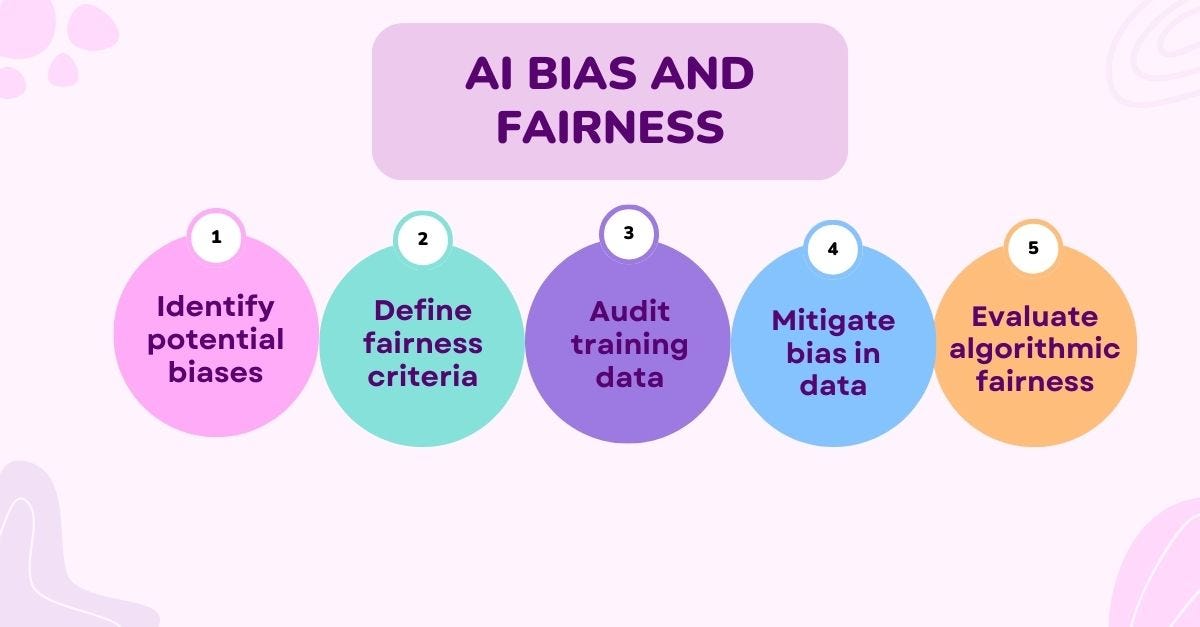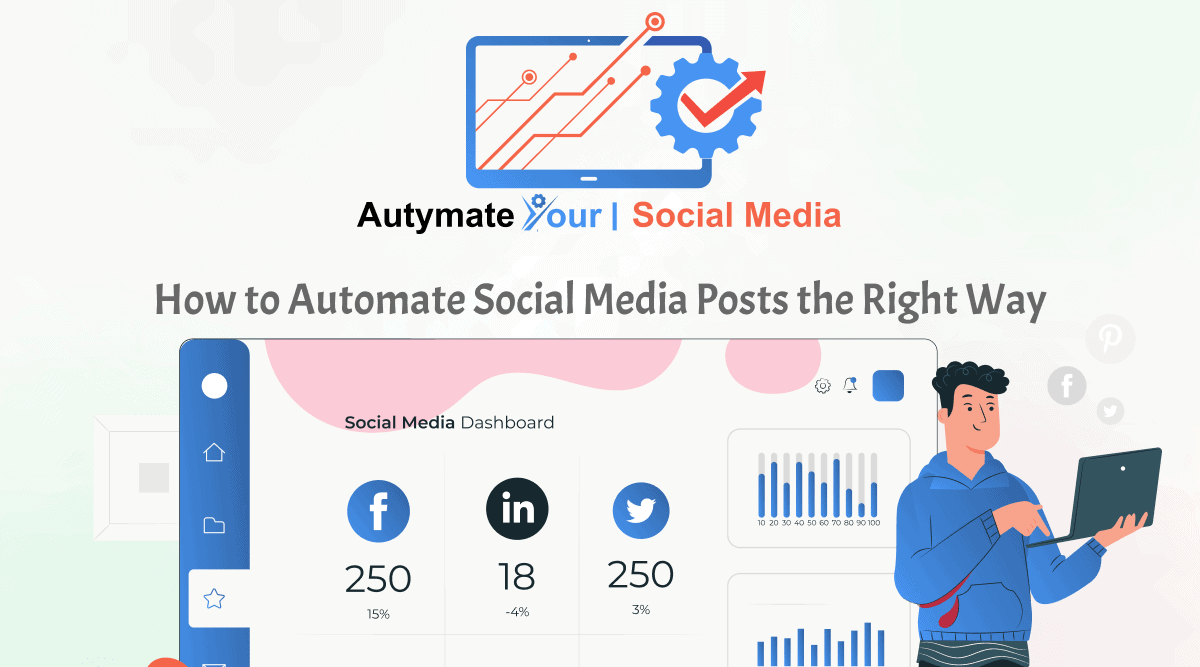Ethical considerations of AI in influencer marketing are crucial as we ride the wave of this tech-infused marketing era. Companies are now navigating the new frontier, marrying cutting-edge AI with the persuasive power of influencers. But as enticing as it sounds, it brings a maze of moral dilemmas. How do we keep our compass pointing north in a landscape where lines blur between real and AI-generated content? Transparency, trust, and the avoidance of bias are our torches in these uncharted territories. Join me as we set the standards for ethical AI in influencer marketing – a journey where we bridge innovation with integrity.
Ethical AI in Influencer Marketing: Setting the Standards
Establishing Transparency and Authenticity
AI-generated Content Disclosure and its Importance in Marketing
We can’t ignore AI in today’s marketing. It’s everywhere. But there’s a catch. We must be open about how we use AI. Why? Well, people care about who they trust. If an ad is from an AI, folks should know. This truth keeps things clear between buyers and sellers. Nobody likes being fooled, right?
Being open helps us avoid tricky spots, like with deepfakes. These super-real fakes can fool our eyes. By disclosing AI use, we stop the spread of fakes. This builds trust. And we all need trust like we need air or water.
The Necessity of Influencer Marketing AI Regulations
Now, let’s chat about rules. Yes, AI is cool. It can even create its own ‘people’ called digital influencers. But just because we can do it, should we? Here’s the thing – without rules, it’s like the Wild West. AI could end up hurting instead of helping.
Rules help make sure no one’s tricking or cheating us with AI. They protect our data and keep bias out. Bias can sneak in when AI only shows us ads based on what we look like or where we’re from. That’s not fair. We need to use AI without being unfair.
So, what do we do with all this? Simple – be honest, be fair, and use AI for good. Let’s create a world where AI and ethics walk hand in hand. Let’s set the standard high and make sure AI in marketing is clear as glass. It’s not just for us. It’s for everyone who’s ever gonna buy anything. Let’s build trust, protect what’s private, and give everyone a fair shake.
Building Trust and Protecting Privacy
Consumer Trust in AI Marketing and Encouraging Informed Consent
Trust is key in influence marketing. People must feel safe with AI handling data. AI influencers work well only when folks trust them. To keep trust high, users should know how their data gets used. They should say “yes” before their data helps create ads.
Safeguarding data privacy with AI influencers
AI must handle personal info safely. This means keeping data secure (no one can steal it) and private (not telling others). Users should feel sure that their info is safe with AI.
The role of consent in customer data utilization by AI
Saying “yes” to data use is a must. No “yes,” then no go. It’s like asking permission before borrowing your friend’s bike. It shows you care and respect them. Companies should do this with data too.
People like knowing how AI uses their info. They like deciding yes or no. With clear info, they can make good choices. AI should be open about what it does. It should tell folks: Here’s what I can do with data if you say yes.
Trust in AI ads comes with knowing the truth. And that truth should be easy to understand. It should feel right, not tricky or hidden. This trust lets AI and marketing live well together. It’s like a team where everyone plays fair.
AI influencers should be honest. They should say, “Yes, I’m AI,” so there’s no tricking anyone. Ads should be upfront too. They should tell you when AI is at work. This keeps things clear and keeps trust strong.
In marketing, trust is gold. AI gets to shine when it earns this trust. That means no sneaky business with data. It means asking you first, “Can I use your info?” Then, only with your “yes,” the magic happens.
AI in marketing comes with big promises. It can spot what you like fast and easy. But, with great power comes great responsibility. That means no taking shortcuts on trust. It means protecting privacy like a superhero. It means always asking for that “yes.”
In the end, trust makes all the difference. It’s what keeps us on the right side of the future. It makes sure AI helps, not harms. It’s about respect and playing fair every step of the way. And that’s how AI wins hearts in the world of ads.
Combating Bias and Ensuring Fairness
Addressing AI Bias and Upholding Ethical Profiling
Mitigating algorithmic bias in influencer marketing
We know AI is everywhere in influencer marketing. It’s behind who gets to see what ads and when. But there’s a catch. AI can be biased. How so? Sometimes it picks favorites without even meaning to. This can lead to certain folks always getting the spotlight while others get left out. That’s not fair, right?
My job is simple yet tough: make sure AI plays fair. I ask, “Who gets seen?” and “Why them?” Then I work to balance the scales. Let’s think about those makeup ads that pop up in your feed. They often show folks who look a certain way. What about someone else who might love that lipstick but never gets to see it? I help fix that.
AI could keep showing that same ad to the same kind of people over and over again. That’s what we call a bias in AI targeting. And it’s a big no-no. We aim for ads to reach all kinds of people. I focus on tweaking the AI to make sure it doesn’t miss anyone out. It’s all about being fair to both the brand and the folks who might want to buy the lipstick.
For this, I team up with coders, marketers, and brands. Together, we peek under the hood of these AI systems. We ask hard questions. We adjust the AI’s “thought process.” We strive for an influencer marketing landscape that’s inclusive. It’s a bit like a gardener making sure all plants get sun, not just the tall ones blocking the light.
Ethical considerations in AI personalization and customer profiling
Now, personalization is great. We all love it when a brand gets us just right. But there’s personalization, and then there’s getting too nosy. We’re talking about AI profiling customer ethics here. Being personal without being invasive, that’s the balance.
AI needs to be transparent. It must show its work. Like a math problem on a test, we need to see how it got the answer. This ties to AI transparency in influencer campaigns. If an AI decides you’d love a new gadget, you should know why it thinks so. Is it because of your past shopping or because you clicked on a tech blogger’s post before?
Artificial intelligence transparency means you’re aware of what info the AI uses. It means you’ve given your okay – your informed consent for AI data use. No sneaky business. No hidden terms in a sea of legalese. Just clear, simple facts about what the AI knows and how it uses what it knows.
This is where things like AI-generated content disclosure come in. When you’re scrolling and see a post, you should know if it’s from a person or an AI. Even if it’s a chatbot talking to you, it should start with “Hey, I’m a bot.”
Avoiding AI deception in marketing is key. Nobody likes to be tricked. When an ad feels too good to be true, you might be dealing with AI-driven influencer accountability issues. My goal? Keep it real. Keep it honest. And make sure you can trust what you see.
In the end, marketers and AI must play by the rules. They have to take steps to fight bias and respect your choices. It’s a big job, but someone’s got to do it. And trust me, when AI is used right, we all win.
Authenticity versus Automation in Influencer Marketing
Balancing Innovation with Human Values
The impact of artificial influencers vs human influencers
Artificial influencers are gaining ground. They work 24/7 and reach millions fast. Still, people trust real influencers more. Real folks share true stories that touch us. They make laughs, and sometimes they cry. This realness is key in influencer marketing.
AI can’t match this yet. It can’t create new experiences or share real feelings. But it can learn from lots of data. It helps brands build perfect digital faces. These faces can talk in any language. They don’t age or get tired. They can be very helpful. But is this fair play? If someone doesn’t know they’re not real, that’s a problem. Using AI should be clear to everyone.
Maintaining ethical use of deep-learning and digital avatars in campaigns
Deep-learning can analyze big data to find who will like a product. Digital avatars are like cartoons that act like real people. They can be in ads or play video games just like us. But there are rules to play by. We must make sure nobody gets tricked.
When using AI, always say it’s AI. Be honest about who made the content. People should know if they’re talking to a chatbot. A chatbot in influencer marketing should never pretend to be a person. This keeps trust alive.
Data privacy is top-notch important. It means keeping private info safe. When brands use AI, they collect loads of data. People need to say it’s okay first. Informed consent for AI data use is saying “yes” to this.
AI helps tailor ads to fit each of us. That’s AI personalization ethics. It should be done right, so nobody feels watched or judged. AI profiling customer ethics means not being unfair. Some AI can be biased. It chooses people based on race or gender. That’s not okay. Every person counts the same.
AI transparency in influencer campaigns is being clear about AI’s role. If an AI makes an image or writes a post, say it. People need to trust what they see online.
AI-driven influencer accountability matters. It’s like saying who’s behind the robot. Someone must take responsibility if things go wrong.
Staying ethical with AI isn’t just nice, it’s a must. It means we can enjoy new tech without worry. It means we’re in charge, not machines. And it means a fair space for all. Whether we click ‘like’ on a human’s story or a chatbot’s joke, let’s keep it real. Let’s keep it honest. Let’s keep it us.
In this post, we dove into the vital role of ethics in AI-driven influencer marketing. We stressed being open and real in all AI content. Firms need to tell customers when they’re seeing AI-made stuff. Rules are vital to keep influencer marketing fair and safe.
Building trust and guarding privacy are key, too. We must protect personal data and be clear on how we use it. Consent is king here. Clients should always say yes before their info is used.
Fighting bias and making sure every deal is fair can’t be ignored. We’ve got to watch for sneaky bias in algorithms. When we profile customers, we need to stay ethical.
Lastly, we must balance cool tech with human touch. Artificial influencers are on the rise, but can’t replace the human factor. Let’s use AI wisely and stick to our values.
Let’s lead the way in setting high ethical standards for AI in influencer marketing. We owe it to our customers and our industry.
Q&A :
What are the ethical concerns with using AI in influencer marketing?
The integration of Artificial Intelligence (AI) in influencer marketing raises various ethical concerns related to data privacy, transparency, the authenticity of content, and the potential for manipulation of consumer behavior. Ethical questions also arise around the attribution of creative content and how influencers disclose the use of AI to their audience.
How does AI in influencer marketing impact consumer trust?
AI’s role in influencer marketing can significantly impact consumer trust, especially if the technology is used to create deceptive or non-transparent content. It’s crucial for influencers and brands to maintain transparency around the use of AI to ensure that trust is upheld with their audience. Failure to disclose the use of AI can lead to a loss of credibility and consumer trust.
What are the best practices for ethical AI use in influencer marketing?
To ensure ethical AI practices in influencer marketing, it is important to prioritize transparency around AI’s involvement, obtain proper consent for data usage, provide accurate endorsements, and avoid manipulating consumer behavior in misleading ways. Influencers and brands should adhere to ethical standards and guidelines set by regulatory bodies to maintain trust and authenticity.
How does AI influence creativity and authenticity in influencer content?
AI can both enhance and challenge the creativity and authenticity of influencer content. On one hand, AI tools can help influencers with content creation, analytics, and personalization, leading to more creative outcomes. On the other, there is a risk that over-reliance on AI may diminish the personal touch and authenticity that audiences value.
What role do regulations play in addressing the ethical use of AI in influencer marketing?
Regulations play a critical role in ensuring that the use of AI in influencer marketing adheres to ethical standards. These regulations can include guidelines on data protection, advertising disclosure, and consumer rights. They help to protect the interests of both consumers and influencers, ensuring a fair and transparent market where AI is used responsibly.
